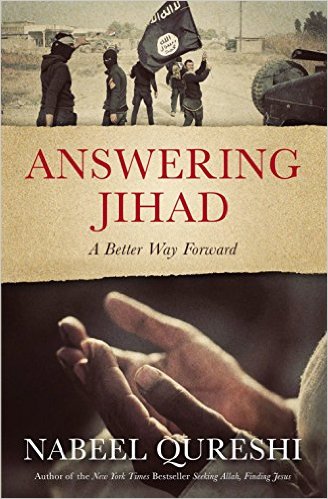The Self-Denial That Brings Contentment
 by Jeremiah Burroughs
by Jeremiah Burroughs
Christ teaches self-denial and how that brings contentment.
1. Such a person learns to know that he is nothing. He comes to this, to be able to say, 'Well, I see I am nothing in myself.' That man or woman who indeed knows that he or she is nothing, and has learned it thoroughly will be able to bear anything. The way to be able to bear anything is to know that we are nothing in ourselves. God says to us, 'Wilt thou set thine eyes upon that which is not' (
Proverbs 23:5) speaking of riches. Why, blessed God, do not you do so? you have set your heart upon us and yet we are nothing. God would not have set our hearts upon riches, because they are nothing, and yet God is pleased to set his heart upon us, and we are nothing: that is God's grace, free grace, and therefore it does not much matter what I suffer, for I am as nothing.
2. I deserve nothing. I am nothing, and I deserve nothing. Suppose I lack this and that thing which others have? I am sure that I deserve nothing except it be Hell. You will answer any of your servants, who is not content: I wonder what you think you deserve? or your children: do you deserve it that you are so eager to have it? You would stop their mouths thus, and so we may easily stop our own mouths: we deserve nothing and therefore why should we be impatient if we do not get what we desire. If we had deserved anything we might be troubled, as in the case of a man who has deserved well of the state or of his friends, yet does not receive a suitable reward, it troubles him greatly, whereas if he is conscious that he has deserved nothing, he is content with a rebuff.

 by John Calvin
by John Calvin If we define Islam, not as the practice of Muslims, but as the teachings of Muhammad then violence is an integral part of Islam.
If we define Islam, not as the practice of Muslims, but as the teachings of Muhammad then violence is an integral part of Islam.  If the mighty works, which have been done in thee [Capernaum], had been done in Sodom, it would have remained until this day. But I say unto you, That it shall be more tolerable for the land of Sodom in the day of judgment, than for thee.
If the mighty works, which have been done in thee [Capernaum], had been done in Sodom, it would have remained until this day. But I say unto you, That it shall be more tolerable for the land of Sodom in the day of judgment, than for thee. "Unless the Holy Ghost blesses the Word, we who preach the gospel are of all men most miserable, for we have attempted a task that is impossible. We have entered on a sphere where nothing but the supernatural will ever avail. If the Holy Spirit does not renew the hearts of our hearers, we cannot do it. If the Holy Ghost does not regenerate them, we cannot. If He does not send the truth home into their souls, we might as well speak into the ear of a corpse." - C. H. Spurgeon
"Unless the Holy Ghost blesses the Word, we who preach the gospel are of all men most miserable, for we have attempted a task that is impossible. We have entered on a sphere where nothing but the supernatural will ever avail. If the Holy Spirit does not renew the hearts of our hearers, we cannot do it. If the Holy Ghost does not regenerate them, we cannot. If He does not send the truth home into their souls, we might as well speak into the ear of a corpse." - C. H. Spurgeon